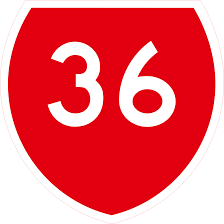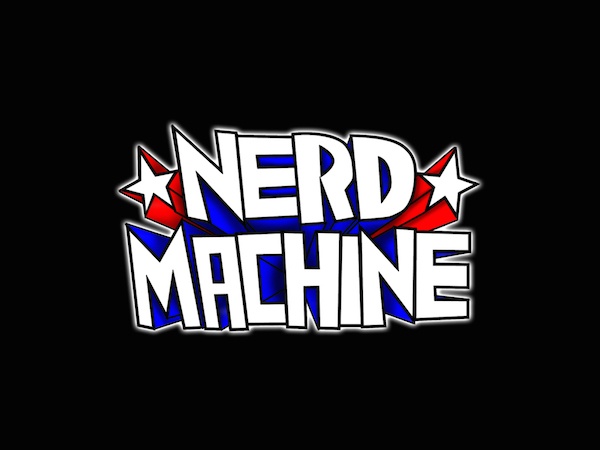If you took the SAT after February 2016, your test is significantly different from the old SAT. What're the main differences between the old and new SAT? How do you convert between the two tests? How do these changes affect you as the test taker?
Dora Seigel
Recent Posts
Every year nearly 2 million students take the SAT, but what's it out of? I'll answer this question and more in this article.
Out of the 1.5 million juniors in the US who take the PSAT only about 7,600 will end up with a National Merit Scholarship of $2,500 through the National Merit Scholarship Program. So how do you qualify? If you do qualify, what are your chances of getting the scholarship?
I am going to answer these questions by discussing the basic qualification for National Merit and laying out a timeline for the program.
How Many Questions Can You Miss for a Perfect ACT Score?
Lots of students strive for that perfect 36 ACT composite score. You might think you need a completely perfect test, but that's not the case. You have some leeway in how many questions you can miss and still get a 36.
In this article, I'll explain my research into official ACT grading scales, and I'll tell you how many questions you can get wrong and still get that 36.
How Many Questions Can You Skip for a Good ACT Score?
The ACT is a time crunch, and most students have trouble finishing the whole test in the allotted time. So how many questions can you skip for a good score?
In this article, I'll let you know how many questions you can skip or answer incorrectly and to get a composite score of 26.
If you're taking the SAT, you're definitely not alone! While colleges use SAT scores as an indicator of smarts and aptitude for college, smart people do not always perform well on the SAT test. In this article, I'll share the SAT scores of some reputedly smart people, former and current Presidents, CEOs, authors, etc. Hopefully, their scores will make you feel proud of your own!
If you are taking the ACT, you are following in the footsteps of a lot of other smart people! Universities use ACT scores as an indication of smarts and preparedness for college, but smart people do not always score high on the ACT test. In this article, I divulge the ACT scores of some reputedly smart people, politicians, CEOs, authors, etc.
The ACT Science section, more than any other, is about strategy over knowledge. Because every graduating high school senior has a varied level of science education, the only way to make a "fair" or "standardized" test is to test very basic concepts. If the ACT Science tested basic concepts in an easy way everyone would get a 36, so instead, the ACT tests these basic concepts in new and confusing ways.
In order to get the best score, you need to use a strategy to attack this strange test and practice the strategy on several ACT Science practice tests. For information about practice tests, check out our other article. You only have 35 minutes to answer 40 questions (or 52.5 seconds per question) and each question has the same point value, so you also need a strategy that helps you answer as many questions as possible in the shortest amount of time.
Like most ACT Science questions, Interpreting Experiments don’t require you to understand the hard science behind the experiments. Instead, these Interpreting Experiments questions will give one interpretation of part of the passage and ask you whether that interpretation is true or not, using the data from the experiment. These questions have a predictable pattern to the question and answers, which you can use to your advantage.
In this article, I'll cover the general format of Interpreting Experiments Questions, solve several ACT Science practice questions, and provide ACT Science tips to answer these questions.
Many students struggle with ACT Science. Students, who came to me for tutoring after taking their first official ACT test, typically performed worst on this section. It is very fast and unlike any other science test. This section more than any other is about pacing and strategy. I was able to boost my ACT Science score 5 points with a few tips. So, what simple tips and tricks can you use to boost your ACT Science score right now?
Every day you have a plan: whether it’s going to school or the movies. You make plans if you don’t already have a plan. Scientists / Researchers are major planners and control-freaks (get it science nerds?).
The ACT Science section asks you to figure out what that plan was and how it could hypothetically change. These two types of questions are typically found in Research Summaries Passages.
Interpreting Trends in ACT Science: Relationships Between Data Points
Interpreting trend questions can sometimes feel like looking into a crystal ball and predicting the future. Thankfully, no psychic powers are necessary to answer these questions. These questions do require you to interpret the data you are given, going beyond the basic factual questions. Interpreting Trends questions only appear in Data Representation and Research Summaries Passages. For more information about these types of passages and the other types of questions, check out the 3 types of ACT Science passages.
Conflicting Viewpoints in ACT Science: Strategies and Tips
Think of the Conflicting Viewpoints Passages as a debate: two or more parties state their conflicting beliefs. Sometimes they agree on one point but disagree on others. Conflicting Viewpoints Passages present this argument and expect you to identify the Scientists’/Students’ beliefs and the similarities and/or differences in beliefs.
There will only be 1 Conflicting Viewpoints Passage on the ACT Science section (out of 7 total passages). It can appear at any point throughout ACT Science. To read about the other types of passages, check out our article on the 3 Types of ACT Science Passages.
How to Do Well on ACT Science for Non-Science People
ACT Science is really a misnomer. The test should be called the “reading with very confusing big words and tricky visuals” section. The reason ACT Science does not force you to memorize AP level Bio or complete IB Physics HL problems is that not everyone takes all of that math in high school. For ACT Science to be a fair standardized test for all high school students, the test asks you about basic science concepts in tricky or confusing ways.
If you're one of those people who runs away from Math and Science Questions or considers themselves a writer or artist rather than a scientist or mathematician, do not fear! You can still get a 36 on ACT Science.
Calculating Questions on ACT Science: Interpolating and Extrapolating From Data
In these questions, math meets science. You might be thinking, “Wait, but the ACT Science section doesn’t let you use your calculator!” This is true! And this means the ACT Science questions that require calculations will only require very simple math that you can do by hand or in your head.
Calculation questions require you to find a specific value based on the figures provided. However, the value will not be shown in the figure. Using the information you are given, you will need to predict what would happen past the edges of the graph or between values on a table. In this article, I'm going to cover interpolations and extrapolations, along with tips and realistic ACT Science practice questions.
























